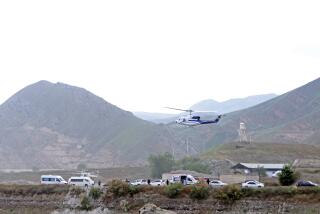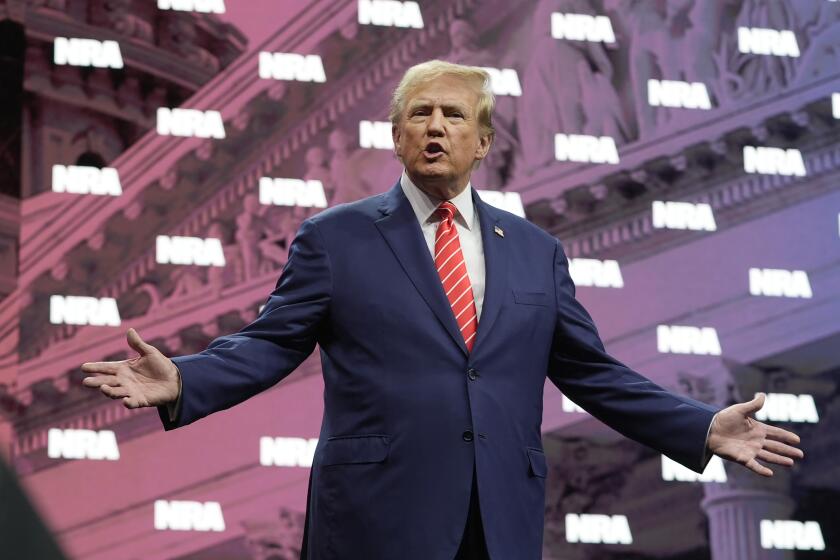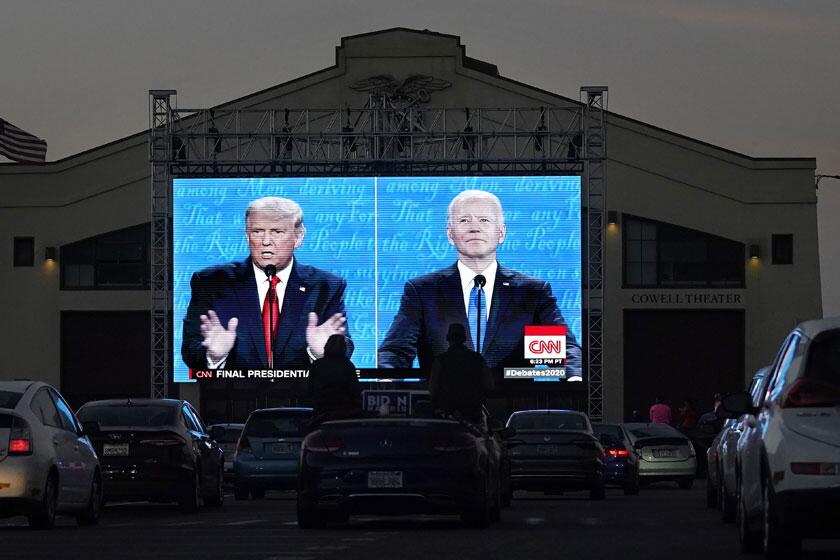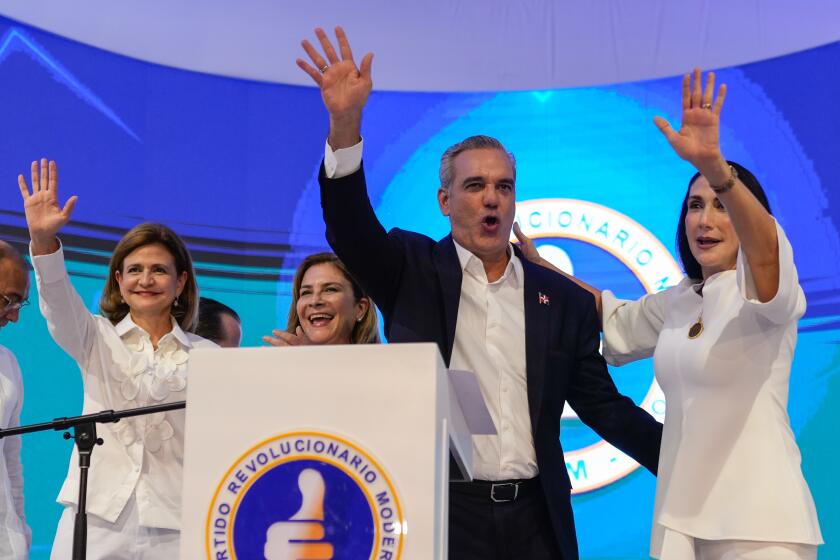Clinton Will Visit Syria to Push Peace : Mideast: The President will stop in Damascus during a three-day trip in which he will witness the signing of an Israel-Jordan treaty. He says terrorism will not deter him.
President Clinton said Friday that he will visit Damascus next week to prod President Hafez Assad to move faster in peace negotiations with Israel, despite Syria’s generation-long links to international terrorism.
The President plans to stop in the Syrian capital as part of a hectic three-day tour of the Middle East to celebrate the signing of the Israel-Jordan peace treaty ending almost half a century of animosity. He also plans to address both the Israeli and Jordanian parliaments, visit U.S. forces in Kuwait, confer with the monarchs of Kuwait and Saudi Arabia and meet in Cairo with Egyptian President Hosni Mubarak and PLO Chairman Yasser Arafat.
Clinton said at a news conference Friday that a bloody terrorist bombing in the heart of Tel Aviv this week made him even more determined to go ahead with the trip, which he said will dramatize U.S. support for the Middle East peace process. He said that the radical Islamic organization Hamas perpetrated the bombing to sabotage Israel’s negotiations with the Palestine Liberation Organization and Syria.
“I think it is terribly important, especially since there have been violent reactions from the enemies of peace, that the United States stand with the friends of peace and the champions of peace at this time,” Clinton said. “It is even more important than it would have been a few days ago that I go there and that our country stick up for this.”
He brushed aside questions about his own safety, saying that he has confidence in the U.S. Secret Service and the security forces of the countries he will visit.
U.S. officials said Syria played no role in the Tel Aviv bombing or in other recent acts of terrorism in Israel. However, the State Department has long included Syria on its list of countries that support international terrorism. In the latest report, the department said the Damascus regime “continues to provide support and safe haven” for terrorist groups that target Israel.
Clinton said he will urge Assad to curb Damascus-based terrorist organizations, but the main purpose of the meeting is to attempt to accelerate the ponderous pace of the Israel-Syria talks.
“I do not believe that we can permit (Syrian support of terrorism) to keep us from pursuing a comprehensive peace as long as nothing in our peace agreements undermines our commitment to end terrorism,” Clinton said.
Secretary of State Warren Christopher said Clinton and Assad will not have enough time together to engage in detailed negotiations. But he said the meeting “can inspire Assad to move the process forward.”
The Syrian president covets the international recognition that accompanies a visit by a U.S. President to Damascus, and U.S. officials hope that the meeting will result in some sort of gesture toward the Israelis.
A senior State Department official said later that the visit “gives us a chance to concentrate their minds.”
Syrian and Israeli officials have not met face-to-face for months, so the negotiations are being conducted through American go-betweens, primarily Christopher. The secretary of state said he will resume Jerusalem-Damascus shuttle diplomacy “when the parties are ready for me to come back,” probably within a few weeks.
Recent terrorist incidents have produced a backlash in Israel against the peace process, which could make it more difficult for Prime Minister Yitzhak Rabin to strike a compromise with Assad. But U.S. officials said Rabin probably can continue the negotiations unless there is a terrorist attack linked directly to Syria.
A senior State Department official said Assad will probably rein in Damascus-based terrorist groups, at least as long as the negotiations seem to be productive, because the Syrian president knows that “if Rabin’s political space disappears, it will not be possible to reach an agreement with Syria.”
Clinton’s trip is the most extensive one to the Middle East by a U.S. President since Richard Nixon toured the region in 1974, less than a year after Israel’s war with Egypt and Syria. Clinton is the first President to visit Damascus since Nixon, although former Presidents Jimmy Carter, Ronald Reagan and George Bush all met Assad in Europe. Clinton and Assad met in Geneva last year.
Clinton used the news conference to claim credit for a recent string of foreign policy successes, including the signing Friday in Geneva of an agreement intended to curtail North Korea’s nuclear weapons program.
“This is a good deal for the United States,” he said. “North Korea will freeze and then dismantle its nuclear program. South Korea and our other allies will be better protected. The entire world will be safer as we slow the spread of nuclear weapons.”
Shortly after the agreement was signed, South Korea announced the cancellation of a joint U.S.-South Korea military exercise scheduled for later this year.
Clinton also hailed the return of elected President Jean-Bertrand Aristide to Haiti and Iraq’s retreat from the Kuwaiti border in the face of a U.S. military buildup in Kuwait.
“A lot of these things are the accumulation of two years of hard work, trying to fashion the national security of the United States and advance the economic interest of the United States and advance democracy in the post-Cold War world,” he said. “A lot of these things have come together in a short time.”
Deputy Defense Secretary John M. Deutch later wrapped the last two weeks in a mantle of hyperbole. “This has been the best week or two weeks we’ve seen in national security in about 200 years,” he said.
More to Read
Start your day right
Sign up for Essential California for news, features and recommendations from the L.A. Times and beyond in your inbox six days a week.
You may occasionally receive promotional content from the Los Angeles Times.






